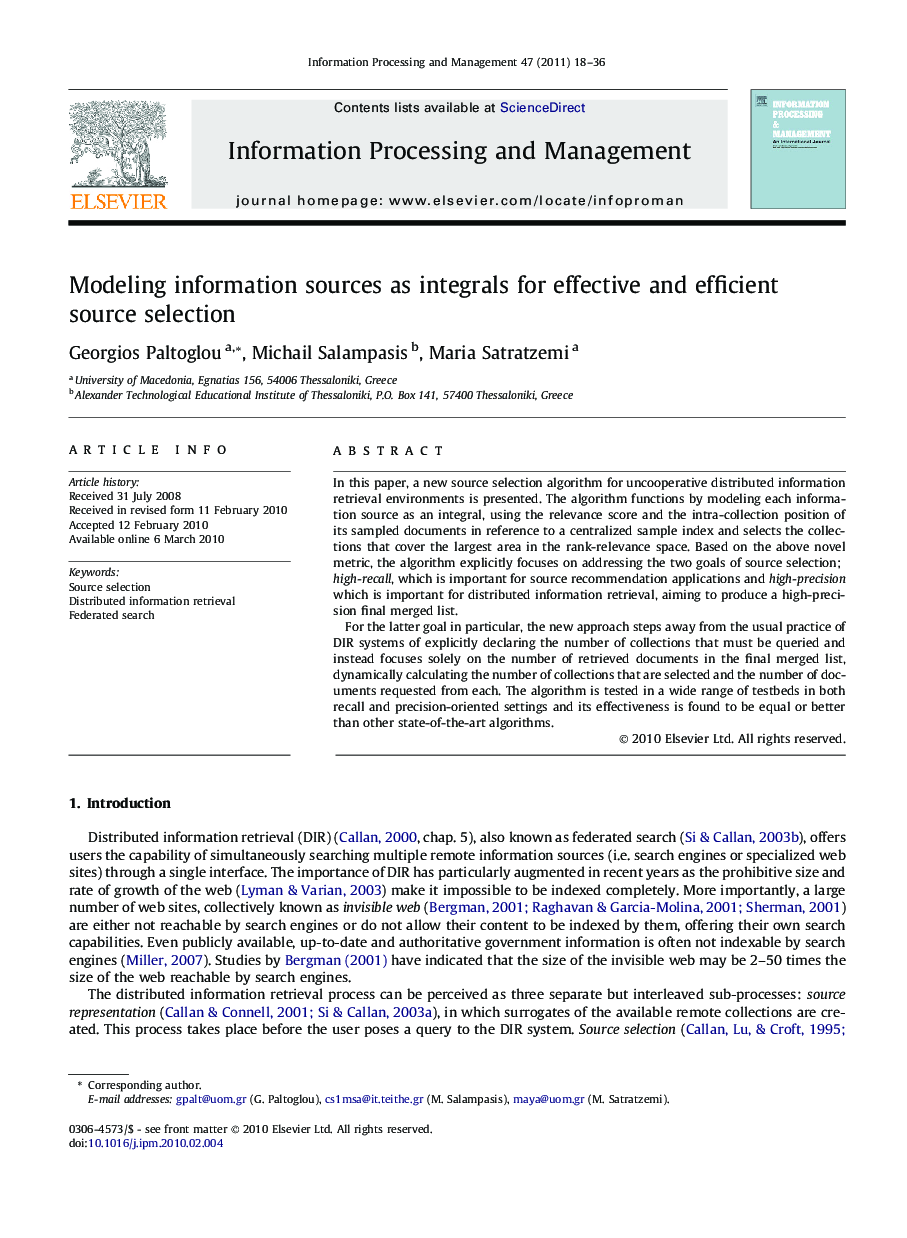| Article ID | Journal | Published Year | Pages | File Type |
|---|---|---|---|---|
| 515095 | Information Processing & Management | 2011 | 19 Pages |
In this paper, a new source selection algorithm for uncooperative distributed information retrieval environments is presented. The algorithm functions by modeling each information source as an integral, using the relevance score and the intra-collection position of its sampled documents in reference to a centralized sample index and selects the collections that cover the largest area in the rank-relevance space. Based on the above novel metric, the algorithm explicitly focuses on addressing the two goals of source selection; high-recall, which is important for source recommendation applications and high-precision which is important for distributed information retrieval, aiming to produce a high-precision final merged list.For the latter goal in particular, the new approach steps away from the usual practice of DIR systems of explicitly declaring the number of collections that must be queried and instead focuses solely on the number of retrieved documents in the final merged list, dynamically calculating the number of collections that are selected and the number of documents requested from each. The algorithm is tested in a wide range of testbeds in both recall and precision-oriented settings and its effectiveness is found to be equal or better than other state-of-the-art algorithms.
